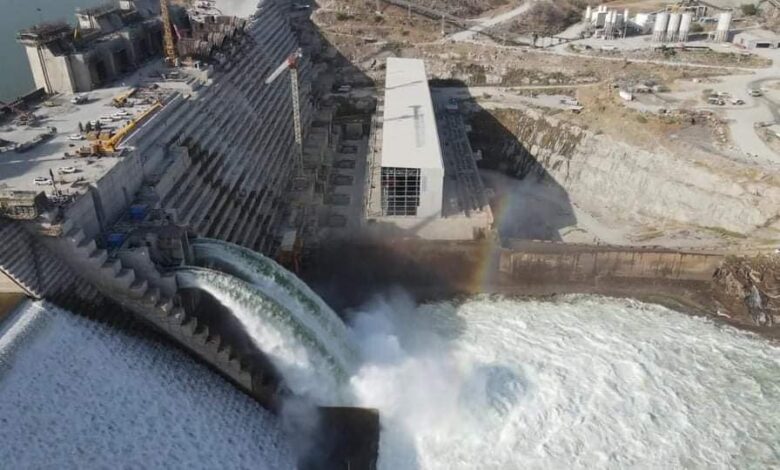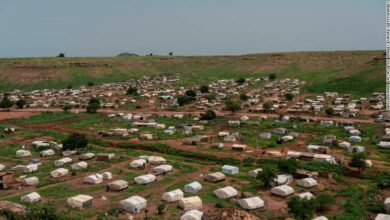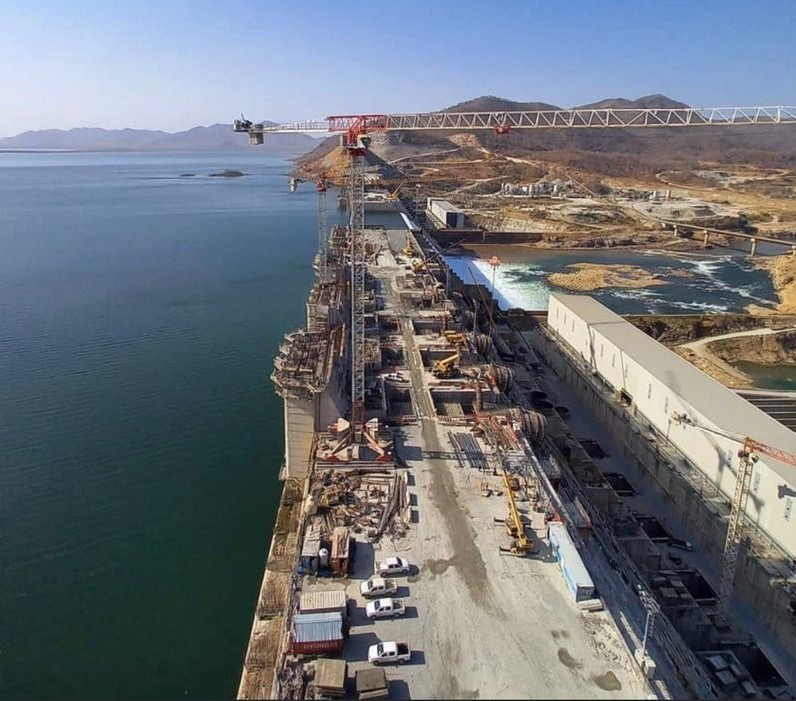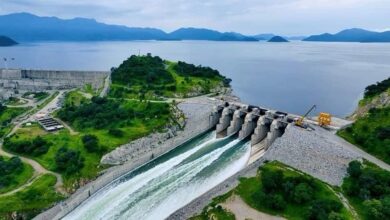
The turbines of the Grand Ethiopian Renaissance Dam (GERD) have not been working for the second month in a row, RT said an Egyptian water professor at Cairo University, Abbas Sharaqi.
The last time the satellites monitored the operation of the turbines was on March 25, when water continued to flow from the eastern drainage gate.
The is an operation at half its capacity to pass about 20 million cubic meters of water a day, Sharaqi explained.
Satellite images published by Sharaqi revealed new developments in the GERD.
Work to lay the required concrete on the middle corridor continues, but there is no accurate information about the height of both sides of the dam and the middle corridor, Sharaqi added.
Rain will begin gradually starting next week, and the river’s water levels will rise at the Renaissance Dam from ten million cubic meters currently to 25 million cubic meters, and then 60 million cubic meters in May and June respectively.
This will be especially prevalent up until the main rainy months from July to October, he said.
Sharaqi explained that the unfortunate war between the Sudanese army and the Rapid Intervention Forces, which broke out in the middle of April, casts a shadow over the region, and exacerbates the deterioration of the internal conditions in Sudan.
He added that war also affects the Renaissance Dam negotiations as attention in Sudan shifted to war.
Sharaqi pointed out that instability in Sudan has served Ethiopia since 2011 to construct the GERD.
“Is Ethiopia taking advantage of the current events in Sudan and increasing the amount of fourth storage as much as possible?,” he asked.
“Will the Ethiopian attacks return to the eastern lands of Sudan, taking advantage of the Sudanese army’s preoccupation and weakness after the destruction of vital sites and airports?”
Egypt condemned attempts to politicize the Grand Ethiopian Renaissance Dam dispute.
Deputy Foreign Minister for African Affairs, Hamdi Loza, denounced the Ethiopian Foreign Minister for accusing Egypt of attempting to politicize the Nile water file and the Renaissance Dam crisis.
He stressed, in a press statement on April 12, that Egyptian concerns about the repercussions of the project on Egypt’s water security are real and based on documented scientific facts.
Loza stressed that the continuous Ethiopian claim of Egypt’s politicization is an attempt to evade legal responsibility, disregard the principles of international law and good neighborliness.
Egyptian Minister of Irrigation and Water Resources, Hani Sewilam, said earlier in April that the Grand Ethiopian Renaissance Dam is putting pressure on Egyptian water resources.
It announced the operation of the second turbine in GERD to generate electric power, which comes in light of the tension between Addis Ababa and Egypt, Sudan due to what the two countries consider a negative impact of the dam on their water shares of the Nile River.
Egypt and Sudan say they want a legally binding agreement on operating the dam, while Ethiopia says any pact should be advisory.
Both countries consider the dam a threat to their vital water supplies, while Ethiopia considers it essential for development and doubling its electricity production.
The downstream nations fear possible blows to water facilities, agricultural land, and overall availability of Nile water.
Negotiations over the dam between Egypt, Ethiopia, and Sudan have stalled for years, with the three parties ultimately failing to reach any agreements.
The disputed dam is the largest hydroelectric project in Africa, with a cost of more than four billion dollars.




